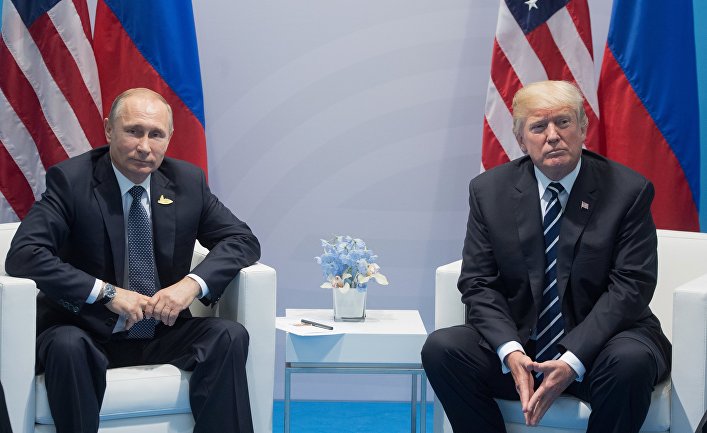The US administration has until Saturday to submit to Congress its inaugural annual report on any additions to the so-called "Magnitsky List” of Russians deemed by Washington to be complicit in human rights abuses and subject to US travel and financial sanctions.
The report is almost certain to irritate Moscow if the blacklist is expanded and could prompt Russia to add to its own list of US officials hit with analogous sanctions after Washington published the names of 18 Russians on the Magnitsky List in April, experts said.
"If the administration comes out with a huge list, which I do not expect, the Russians might react more vigorously,” Steven Pifer, former US ambassador to Ukraine, told RIA Novosti. "But I guess it will be such that the Russians will retaliate by announcing that they’ve added some names to their list.”
The US blacklist is authorized under the Magnitsky Act, a US law designed to punish officials believed to be connected to the 2009 death of whistleblowing Russian lawyer Sergei Magnitsky in a Moscow jail and later broadened to include a range of alleged rights abusers.
The law, signed by President Barack Obama on December 14, 2012, was a central factor in the deterioration of ties between the US and Russia over the past 18 months. Moscow has repeatedly portrayed the law as US meddling in its internal affairs and has responded in part by banning Americans from adopting Russian children.
The Magnitsky Act requires the US State and Treasury Departments to report to Congress within one year of the date of the enactment of law, to clarify the number of individuals who were added to or removed from the blacklist and to explain the decisions.
It was not immediately clear whether delays could prevent the report from being submitted by Saturday’s deadline. The Treasury Department referred inquiries to the State Department, which told RIA Novosti that it had nothing to announce about the list.
State Department officials said earlier this year that they planned to expand the Magnitsky List, sparking a sharp response from the Russian Foreign Ministry.
"We have explained repeatedly that the ‘war of blacklists’ started by Washington is unquestionably a dead end, dooming Russian-US relations to fruitless confrontation,” a ministry spokesman said in a July 12 statement.
A key Congressional proponent of the sanctions said last week that he expects the US administration to extend Magnitsky Act sanctions to more individuals.
"I anticipate that we will see more names added to it very soon,” Rep. James McGovern, co-author of the legislation introducing the sanctions, wrote in a Dec. 3 letter to Secretary of State John Kerry.
No senior federal Russian officials were included in the Magnitsky List published in April, though US officials said a separate classified list was allowed under the law. All but two of the 18 individuals named in the inaugural blacklist have been accused by the US government and Russian rights activists of involvement Magnitsky’s death.
Political scientist Nikolai Zlobin told RIA Novosti that Moscow would be unwise to respond to any US additions to the Magnitsky List with sanctions on an equivalent number of American officials.
"Russia has all sorts of opportunities to make life difficult for the United States, but when it takes the form of these symmetrical responses, Russia once again shows that it’s not the leader in this relationship,” said Zlobin, head of the Washington-based Center on Global Interests think tank and a member of the Valdai Club, a Kremlin-backed international discussion forum.
The Obama administration initially opposed the Magnitsky Act, arguing that those allegedly involved in Magnitsky’s death could be punished under existing sanctions and frameworks. Its reluctance to embrace the legislation was seen by many as an attempt to shield US-Russian ties in areas like counterterrorism and arms control from the diplomatic fallout over the sanctions.
The administration announced the inaugural Magnitsky List on April 12, the last working day before the deadline mandated by the Magnitsky Act for the blacklist to be made public.



_jpg/250px-ElbeDay1945_(NARA_ww2-121).jpg)









